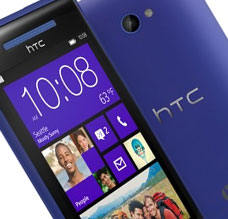A week ago this past Saturday, I presented at SharePoint Saturday New Hampshire on the topic of integrating Windows Phone with SharePoint in custom apps. I got sidetracked for a moment or two… chatting about why I see Windows Phone as being a viable platform. So far, it’s been rough. As an anecdote, everyone I know who has a Windows Phone bought a copy of my charity-bound “Jimmy Sudoku” app. Sadly, the contribution to the charity from it is… not what I hoped.
Still, I think the cool-aid was worth sharing… To be fair, all the people I know who have a Windows Phone are relatively outspoken fans of it… and that includes a number of folks you’d never suspect of being “Smart Phone” users.
Anyway, a few days before SPSNH, I ran across a relatively insightful article on TechCrunch (I’ll post the link at the end). It opens by quoting the opening dialogue of Christopher Nolan’s 2006 film, “The Prestige”:
Indeed, I agree, it is magic, and everything that goes with it.
MG’s article was a commentary of the iPhone 5, and it captured the sentiment I’ve been hearing over & over again about it. The Apple’s iPhone is starting to run a bit shy of manna. (Update 9 Feb 2013: Slashdot, Woz says iPhone Features are Behind. )
Admiration aside… If Apple’s past and present magic is in “The Turn”, (and we agree that the iPhone is a hard-won magic trick) it follows that, within the market, there must have been “The Pledge” and “The Prestige” as well. That’s when I started to get excited… it seems pretty clear to me where “The Prestige” is, but I’ll get back to that.
The role of “The Pledge” has been played before, as well, in popular technology of days gone by. In the early PC wars, this role was played by a small number of makers. The most memorable of them were the Commodores and TRS-80’s. This cadre of early PC makers had one thing in common… the average hobbyist (aka geek) could make them do magic in fits and starts, causing loyalty that ran deep (just ask the Amiga fans), but they didn’t have much, if any, magic for the popular user.
Between issues with platform versions & compatibility, components that don’t integrate well, visually or functionally, and malware/spyware, Android is excellent if you’re a technical person who’s not intimidated by compilers and is savvy enough to avoid spyware & malware… but that’s not what the popular user will go for in the long haul. (Update 9 Feb 2013: Slashdot, Fragmentation Leads to Android Insecurities)
So what does it take to become “The Prestige”? It takes that maturity… the ability to allow the average user to make magic with it, affordably, easily… commonly, and, well, normally… on some level, it restores normalcy, ushering in commoditization of the magic that once was so amazing.
 If you take into account that Microsoft was the successor of the IBM compatible legacy, it starts to become clear that Microsoft holds the title to a long history of taking Apple’s “magic”, and refining it into maturity.
If you take into account that Microsoft was the successor of the IBM compatible legacy, it starts to become clear that Microsoft holds the title to a long history of taking Apple’s “magic”, and refining it into maturity.In some ways, it’s a bit sad: iPhone’s manna is indeed running out… there’s a little less magic in the world…
…or is there? This magic will soon be in the hands of friends and family who are just starting to get the itch for a mobile device that can play Fruit Ninja and Angry Birds on. All those late adopters who wanted maturity, affordability, reliability, and ease of use over “magic”, but now they get both. When they get their Windows Phone / Surface RT / Windows 8 device, they’ll get to see magic that geeks and power users have been using for years now… and that’s the hardest part “The Prestige”, putting “smartphone”/tablet power and flexibility in the hands of every cell phone user.
http://techcrunch.com/2012/09/13/the-iphone-5-event/
(Update 1/9/2013 clarified PoV a bit on Android)
(Update 2/9/2013, linked back to Slashdot on various posts that supporting my position)
apple steals windows ideas that most people never bothered to realize existed. the cool factor of there ads is the only “magic” apple has ever had. it allowed idiots to see how something can help them rather than showing them truly innovative products and letting the user figure out how it can help.
Interesting blog but I want to read more about it…Hybrex